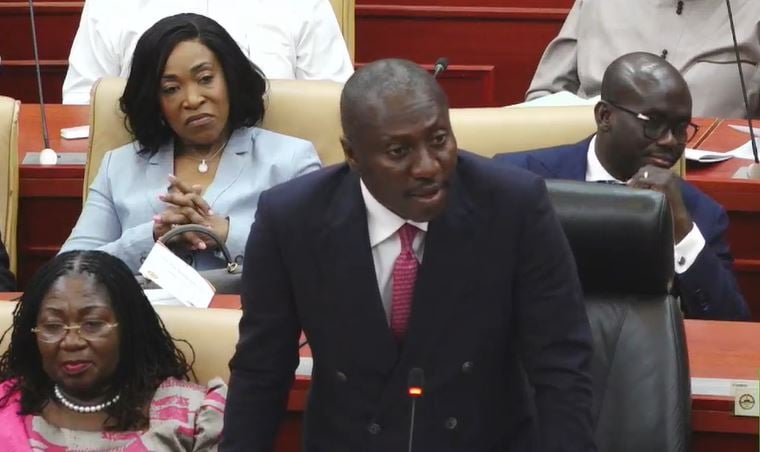The dissolution of Ghana’s Eighth Parliament brought forth a candid reflection from Majority Leader, Mr. Alexander Afenyo-Markin, who characterized the period as one fraught with difficulties, primarily stemming from the dynamics between the ruling New Patriotic Party (NPP) and the opposition National Democratic Congress (NDC). Afenyo-Markin described the NDC Minority as “tough, stubborn, and difficult to work with,” attributes that he believed significantly hampered the legislative process and the ability to achieve consensus on crucial national issues. This perceived intransigence, according to the Majority Leader, created a challenging environment where reaching agreements became a Herculean task, often leading to gridlock and hindering the efficient execution of government business.
Afenyo-Markin further elaborated on the complexities of his role, explaining that his sometimes combative approach was often misinterpreted. While some expected him to prioritize compromise and outreach simply by virtue of his position as Majority Leader, he contended that the Minority’s unwavering stance and perceived pursuit of power made finding common ground nearly impossible. He argued that his firm stance was not a reflection of a personal desire for confrontation but rather a necessary response to the political realities of the Eighth Parliament. This narrative underscores the deep-seated partisan divisions that characterized the period and the challenges faced by leadership in navigating such a polarized environment.
The Majority Leader’s assertion that the NDC Minority was “smelling power” provides further insight into the political motivations he perceived to be driving their actions. This suggests a belief that the Minority’s obstructive tactics were strategically employed to undermine the government’s agenda and position themselves favorably for the next election cycle. This perception of politically motivated obstructionism likely contributed to the heightened tensions and difficulties in reaching bipartisan agreements. Afenyo-Markin’s comments highlight the intricate interplay of political maneuvering, strategic positioning, and ideological differences that shaped the dynamics of the Eighth Parliament.
The difficulties in conducting government business, as highlighted by Afenyo-Markin, underscore the practical implications of the strained relationship between the Majority and Minority. The lack of cooperation and consensus-building likely led to delays in passing legislation, implementing policies, and effectively addressing critical national challenges. This parliamentary gridlock could have had far-reaching consequences, potentially impacting economic development, social progress, and overall governance. The Majority Leader’s reflections serve as a cautionary tale about the dangers of political polarization and its potential to paralyze the legislative process.
Looking ahead to future parliamentary sessions, Afenyo-Markin emphasized the critical need for improved inter-party relations and a greater commitment to finding common ground. He posited that the success of future parliaments hinges on the ability of opposing parties to bridge their differences and work collaboratively in the best interests of the nation. This call for greater cooperation reflects a recognition that partisan politics, while inevitable, should not come at the expense of effective governance and national progress. Building bridges and fostering a spirit of compromise, he argued, are essential for addressing the complex challenges facing Ghana and ensuring a more productive and effective legislative process.
The reflections offered by Mr. Afenyo-Markin provide a valuable lens through which to analyze the challenges and complexities of Ghana’s Eighth Parliament. His candid assessment of the political dynamics, the difficulties in reaching consensus, and the need for greater cooperation in the future offers important lessons for both political actors and the Ghanaian public. As Ghana moves forward, the ability of its political leaders to transcend partisan divides and work together constructively will be crucial for achieving national goals and ensuring a more stable and prosperous future. The experience of the Eighth Parliament serves as a potent reminder of the importance of dialogue, compromise, and a shared commitment to the national good.














